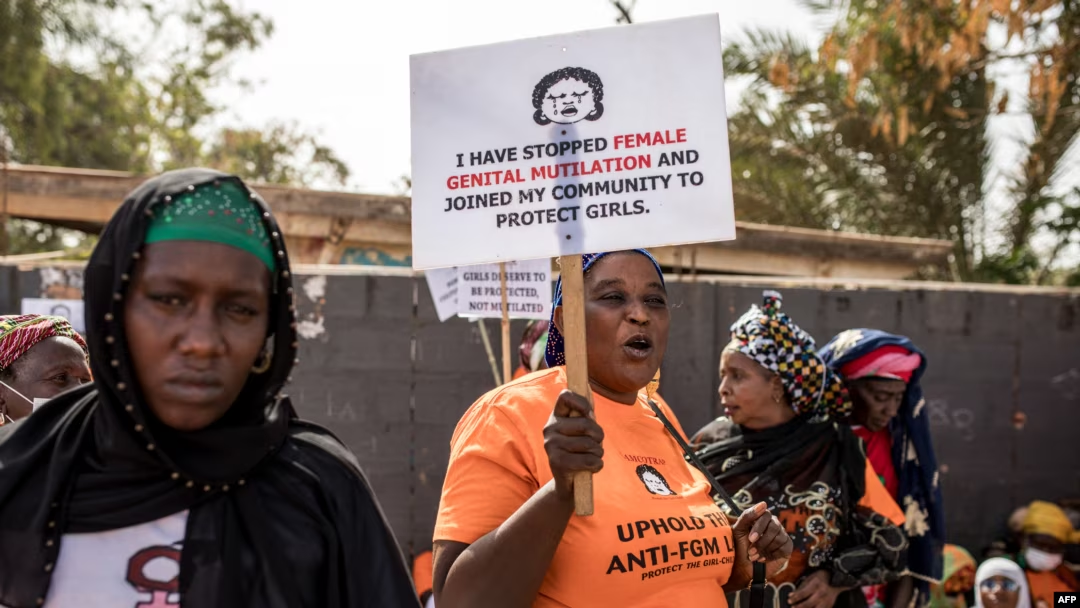Gambia MPs vote to uphold genital mutilation ban
Gambian lawmakers on Monday voted in favour of a committee report supporting a 2015 ban on female genital mutilation (FGM), as a bill seeking to overturn the law heads for a final vote later this month. The Women’s (Amendment) Bill 2024 has been making its way through parliament since March, deeply dividing public opinion in […]

gambia mps vote to uphold genital mutilation ban
Gambian lawmakers on Monday voted in favour of a committee report supporting a 2015 ban on female genital mutilation (FGM), as a bill seeking to overturn the law heads for a final vote later this month.
The Women’s (Amendment) Bill 2024 has been making its way through parliament since March, deeply dividing public opinion in the tiny Muslim-majority West African country.
Rights groups and the United Nations have urged MPs to reject the legislation, warning that it damages years of progress and would see The Gambia become the first country to overturn an FGM ban.
In March, lawmakers voted overwhelmingly in favour of advancing the bill for review by a parliamentary committee before a final vote due at the end of July.
- Abiodun gives contractor 2-week ultimatum to complete road
- Wase community petitions Gov Mutfwang over disputed Bashar chiefdom
The Joint Committee on Health and Gender returned its conclusions Monday, saying that the 2015 ban should be maintained “to prohibit female circumcision in all forms whether genital mutilation or cutting in The Gambia”.
“Repealing the ban on FGM/C (female genital mutilation/cutting) would expose women and girls to severe health risks and violate their right to physical and mental well-being,” the final report said.
FGM involves the partial or total removal of the female external genitalia or other injury to the female genital organs and can lead to serious health problems including infections, bleeding, infertility and complications in childbirth.
The committee also said it had spoken to Islamic scholars who confirmed the practice was not a requirement of Islam – an argument commonly used by the pro-FGM camp.
“Female genital mutilation is not Islamic but a custom/traditional belief,” the report said.
After a heated debate which at times descended into shouting and table banging, 35 MPs voted in favour of adopting the report, 17 voted against and two abstained.
The final vote is due to take place on July 24.
The text, introduced by MP Almameh Gibba, says that “female circumcision” is a deep-rooted cultural and religious practice and that the current ban infringes on the right to practise traditions in the majority Muslim nation.
But activists and rights organisations say the suggested legislation reverses years of progress and risks damaging the country’s human rights record.
The Gambia is among the 10 countries with the highest levels of FGM, where 73 per cent of women and girls aged between 15 and 49 have undergone the procedure, according to 2024 UNICEF figures.
